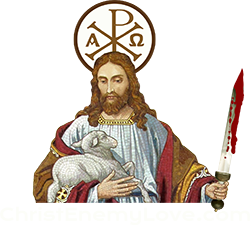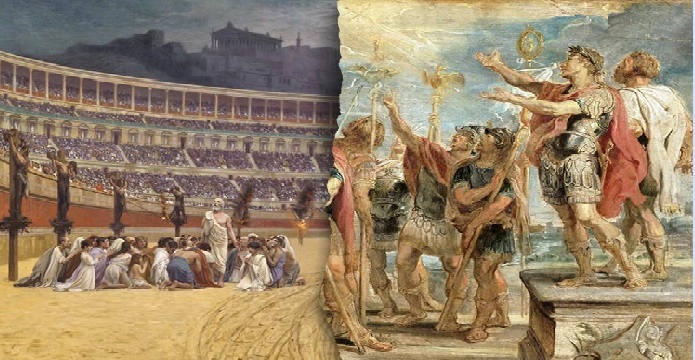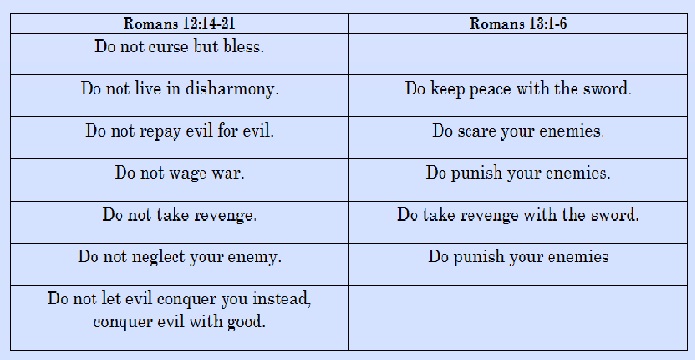Vicki A. Spencer, Visions of Peace: Asia and The West, p 29, 34, 38-40
During the first three centuries of Christian history, opposition to violence and to Christian participation in the military was widespread among Christian theologians, though not applied consistently in practice. Christian writers generally supposed that the Christian gospel contained an imperative to love one’s enemies, to seek peace and to refrain from killing. There is evidence in the 2nd and 3rd centuries of Christians refusing military service and of Christians being expelled from the military. It is clear that some Christians paid with their lives for their principled stand against involvement in the military. This tradition was rapidly eroded during the course of the 4th and 5thcenturies, however, to the extent that by the mid-5th century one had to be a Christian to serve in the Imperial Army. Following the alleged conversion to Christian faith of the Emperor Constantine and the development of ‘Christendom’, the pacifist voice in the Christian tradition was marginalized and sometimes suppressed.
Although the evidence reveals some variation in practice, in general terms, the small community of Christians that preserved and retold the story of Jesus in the years following his death took that story to mean, among other things, that they ought to resign from or refuse enlistment in the military, that they ought to love and pray for their enemies rather than wage war against them and that they ought to suffer death themselves rather than give their allegiance to those political powers that wielded the instruments of war.
The Erosion of Christian Opposition to Warfare
During the 4th century a dramatic reversal of the normative Christian position occurred. Whereas in the 3rd century Christians were being dismissed from the Imperial armies on account of their lack of commitment to the military cause, by the early 5th century–under the emperor Theodosius II–one had to be a Christian in order to serve in the Imperial Legions. The dramatic turn-around was set in train by the alleged conversion of the Emperor Constantine in 312 and the subsequent adoption of Christianity as the official religion of the empire by Theodosius, emperor from 379-395.
What seems to have brought about this change of mind was that the state’s instruments of war were now being deployed against Christianity’s enemies. It was an easy assumption for some to make that God would approve such use of military force. That ‘easy assumption’ soon became widespread, thus beginning an era in which the church ‘s alliance with state power blunted and sometimes obscured altogether Jesus’ commendation of love for one’s enemies and his command to set aside the sword.




